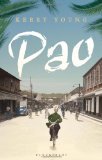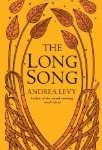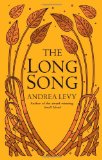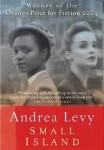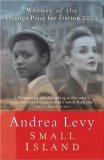Shortlisted for 2012 Commonwealth Writers’ Prize
Shortlisted for 2011 Costa Prize for Fiction
Five words from the blurb: Jamaica, Chinatown, business, political, transforming
Pao is only fourteen-year-old when he arrives in Jamaica in 1938; fleeing the violence of the Chinese revolution. He finds a home with his mother and brother in Chinatown and they try to adjust to life in a country that is very different from their own.
I immediately fell in love with Pao and his numerous money making schemes. His transformation from innocent child to powerful man was engaging to read, but as he grew up and his crimes became more serious I found that I was slowly distancing myself from him and by the end of the book I didn’t like him at all. This could be seen as a negative, but it is rare for characters to undergo such a developmental arc and I actually found this transformation impressive.
The book does a fantastic job of explaining the history of Jamaica. Details of the violence and unrest are sprinkled through the text, giving the reader a good understanding of how the country gained its independence from the British.
So what with all him bicycle talk I never get a chance to tell Zhang ’bout the commotion, and how the dockworkers bring the whole of the downtown to a standstill. But it no matter. Next day it all over town ’bout how Alexander Bustamante get arrested because they think he the one leading the strike, and how the English government probably going to send a commissioner to look into the disturbances, that is how they say it, even though nobody can see no point in that because everybody already know what the trouble is – no work, no food, and no hope that anything going get better.
The Jamaican dialogue took a little bit of time to get used to, but once I adjusted it gave the book a fantastic atmosphere. I think this is one of those books that would benefit from an audio version as I’m sure it would come across better if narrated by a native speaker instead of the voice inside my head!
The main problem with the narrative was that as the book progressed increasingly large periods of time were skipped – this gave the book a disjointed feel. Sometimes characters were returned to after a long absence and I felt as though I no longer knew who they were and this meant I didn’t care about them.
I also felt that the story was a bit dull. So much seemed to be going on around the periphery, but the central story lacked that magical spark.
This book did a lot to explain a period of history that I knew little about and I’d recommend it to anyone looking for fiction set in Jamaica.

.
The thoughts of other bloggers:
…an extremely interesting novel, perfect for summer reading. A Reading Odyssey
….the way it is written was very distracting, and eventually weakens the story itself. Jules’ Book Reviews
Pao is an utterly beguiling, unforgettable novel of race, class and creed, love and ambition, and a country in the throes of tumultuous change. Book Dilettante
